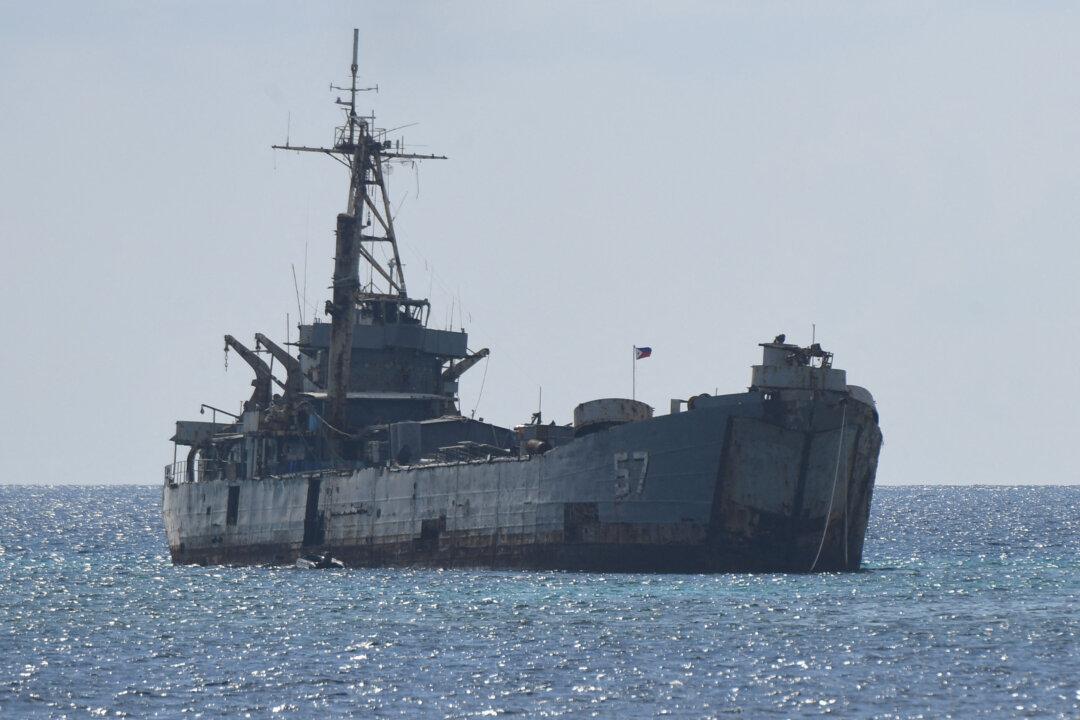The Philippines has denied making any “promise” with China to remove a World War II-era warship—which Manila uses as a military outpost to assert its sovereignty—from a disputed shoal in the South China Sea.
This came after the Philippines accused the China Coast Guard of making dangerous maneuvers and firing water cannons against its boat that was delivering supplies to troops stationed on BRP Sierra Madre in the Second Thomas Shoal, which Manila calls Ayungin Shoal, on Aug. 5.





